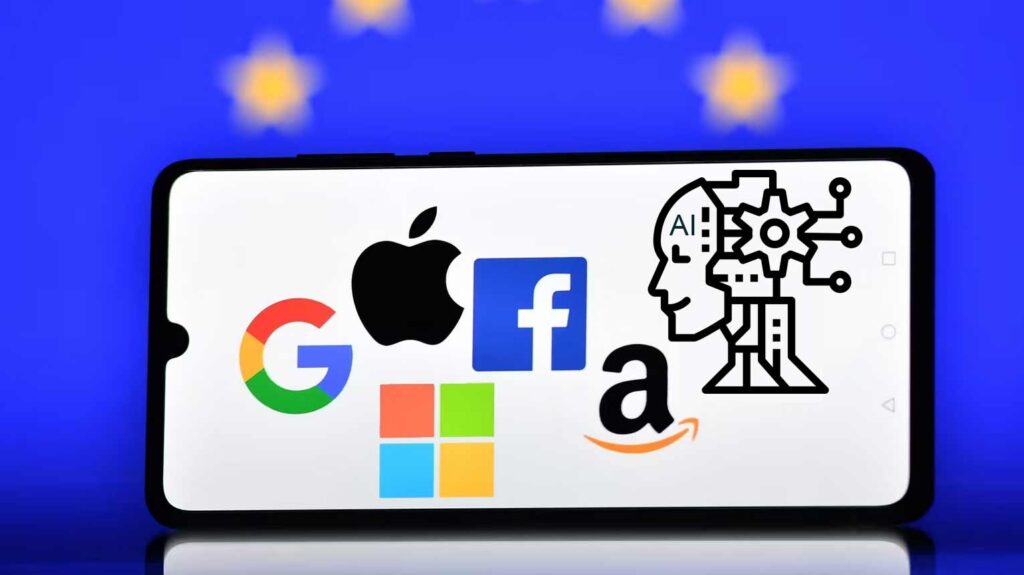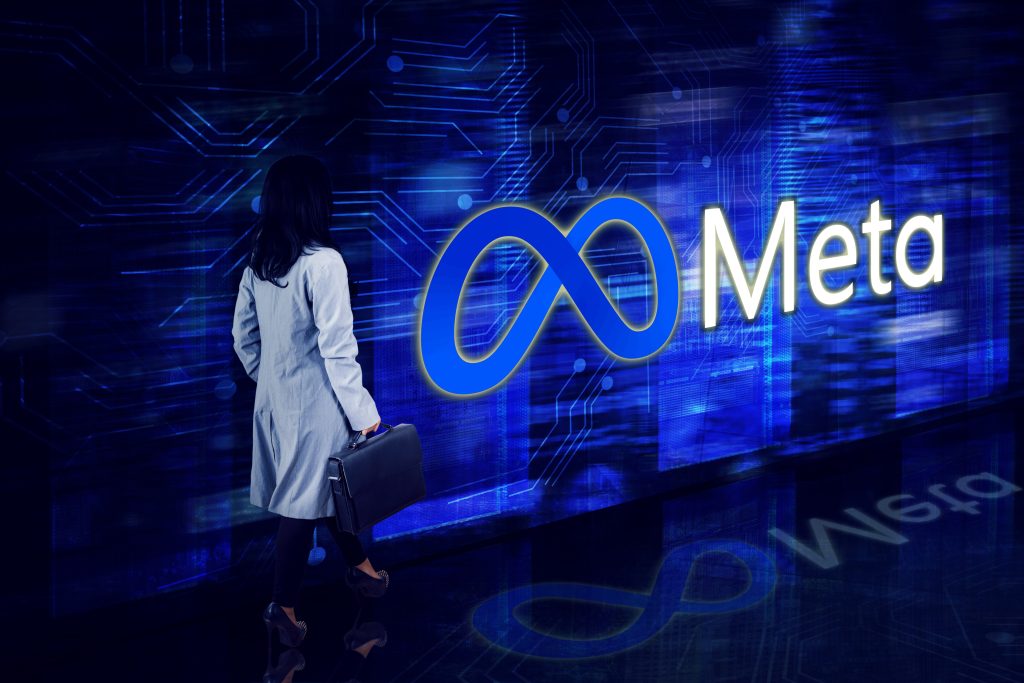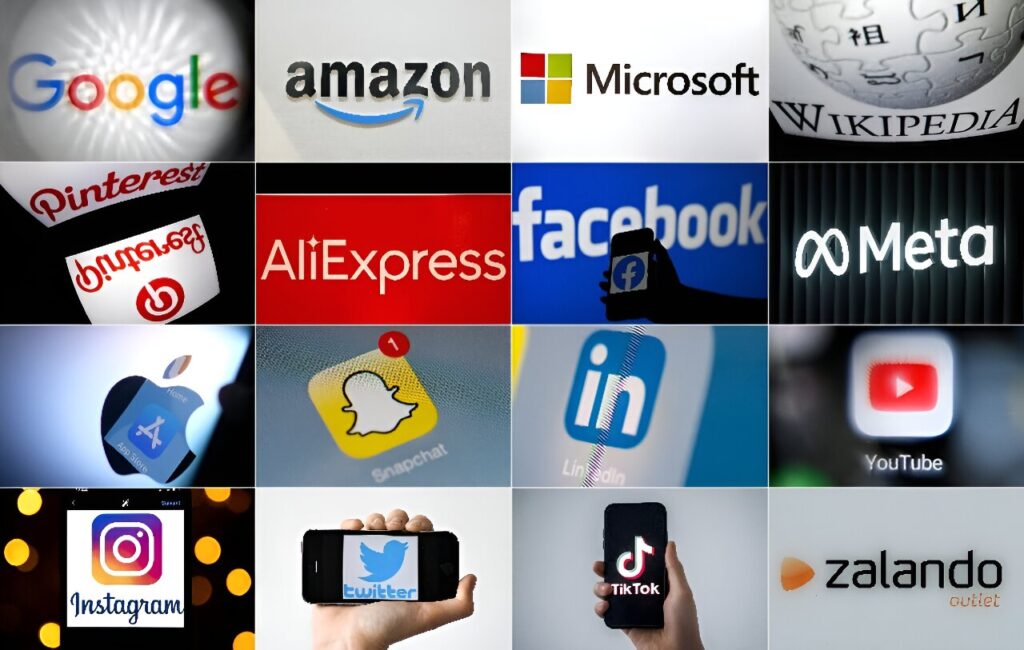Meta’s New AI-Based Video Editing Tools Launched For FaceBook, Instagram

I am a law graduate from NLU Lucknow. I have a flair for creative writing and hence in my free time work as a freelance content writer.

I am a law graduate from NLU Lucknow. I have a flair for creative writing and hence in my free time work as a freelance content writer.

I am a law graduate from NLU Lucknow. I have a flair for creative writing and hence in my free time work as a freelance content writer.
The chief executive officers of 9 companies, which include Amazon.com Inc., Meta Platforms Inc., Alphabet Inc., Microsoft Corp., as well as International Business Machines Corp., were addressed in a letter by a team of lawmakers led by Massachusetts Senator Ed Markey with Washington Representative Pramila Jayapal on Wednesday. In spite of the fundamental importance of this work, a lot of IT employees around the world carry out these demanding duties under constant scrutiny, with inadequate compensation and no benefits, the letter sent to the chief executives stated.

“Workers are expected to screen out dangerous chatbot answers, but they may have little time to assess an answer’s safety,” they added. “Data workers are often given scant training or supervision, which can result in the introduction of bias.”
news.yahoo.com
The legislators question the executives on a wide range of issues pertaining to their data employees, such as the workers’ capacity to request leave, contest suspensions, or seek out mental health services when exposed to upsetting material.
The recipients of the letter include the more recent companies focused on Artificial Intelligence such as OpenAI Inc., Scale AI, Inflection AI, Inc., and Anthropic in addition to the well-known tech giants.
US corporations depend heavily on subcontracted workers to develop artificial intelligence (AI) products, whether they are based domestically or abroad. These workers are employed through external staffing services and frequently lack the perks offered to direct employees of the company. Companies also depend on similar services for other taxing duties like product quality assurance as well as content monitoring.
When confronted with disturbing pictures, some employees describe experiencing trauma as a way to block them out. According to a January Time article, OpenAI pays Kenyan employees less than $2 per hour to prevent that kind of information from appearing on ChatGPT.
Also Read: Binance US CEO quits as embattled crypto platform slashes one-third of staff
Senators are scheduled to meet with executives from companies like Tesla Inc., Microsoft, Meta, and Alphabet at a closed-door AI summit on Wednesday afternoon organized by Senate Majority Leader Chuck Schumer, who was not one of the politicians who signed the letter.
“These tech moguls are under-paying workers, failing to provide them basic protections and benefits, and subjecting them to an extensive web of surveillance in order to prop up their business,” Markey said in an emailed statement. “When they come to the Capitol to tout their innovation and excellence, I’d like to hear them answer for these disgusting labour practices.”
news.yahoo.com

I am a student pursuing my bachelor’s in information technology. I have a interest in writing so, I am working a freelance content writer because I enjoy writing. I also write poetries. I believe in the quote by anne frank “paper has more patience than person
In a bold move to solidify its position as a strong contender in the AI landscape, Meta Platforms Inc. has unveiled its latest innovation – an artificial intelligence coding tool named Code Llama. The announcement comes as part of Meta’s ongoing efforts to compete head-on with giants like OpenAI, backed by Microsoft Corp., and Alphabet Inc.’s Google.

Code Llama, introduced just last Thursday, is a revolutionary coding assistant powered by generative AI. This innovative tool is set to transform the way developers write code by providing intelligent suggestions and enhancements. Leveraging the capabilities of AI, Code Llama aims to significantly boost developer efficiency, ultimately resulting in faster and more streamlined software development processes.
One of the most remarkable aspects of Code Llama is that Meta has chosen to make the underlying generative AI model open source. This strategic move allows other organizations to harness the power of Code Llama’s technology for their own purposes. As highlighted in a recent blog post by Meta, companies now have the opportunity to create their own tailored coding tools using this cutting-edge AI, reducing their dependence on existing solutions from competitors.
In recent months, Meta has been on a mission to democratize AI by releasing open-source versions of AI solutions that directly rival those offered by its competitors. This trend started with the launch of a commercial variant of their extensive language model, similar to the technology that powers OpenAI’s renowned ChatGPT. By giving companies access to their AI chatbot technology, Meta has paved the way for cost-effective chatbot development, sidelining expenses tied to software from tech giants like OpenAI, Google, and Microsoft.
Code Llama is set to continue this trend, simplifying the creation of AI coding tools for businesses. This groundbreaking tool aims to replace the need for purchasing similar products from competitors such as Microsoft’s GitHub Copilot, which relies on OpenAI’s technology. While Code Llama will be accessible for most users at no cost, Meta has indicated that certain large enterprises will have the option to access enhanced features through a paid subscription model.
The development of generative AI technologies has become a focal point for Meta, evident from the establishment of a dedicated product group solely focused on advancing generative AI capabilities. Mark Zuckerberg, CEO of Meta, has consistently emphasized the company’s vision of seamlessly integrating AI throughout its entire product spectrum. Internally, Meta is actively encouraging the adoption of its AI-powered chatbot, Metamate, among its employees. Moreover, there’s anticipation surrounding the imminent launch of a public-access chatbot in the coming weeks.
In conclusion, Meta’s introduction of Code Llama marks a significant milestone in the company’s pursuit to establish itself as a prominent player in the AI landscape. With the power of generative AI and the open-source approach, Code Llama not only empowers developers but also signals a shift towards more accessible and democratized AI tools across the industry.

I am a law graduate from NLU Lucknow. I have a flair for creative writing and hence in my free time work as a freelance content writer.
According to the AP, a significant effort is being made to purge online information, which Google, TikTok, Facebook, Amazon, Instagram, Snapchat, as well as other large internet businesses that operate throughout Europe are dealing with. This Friday, August 25, marks the start of the first part of the new digital rules for the European Union, referred to as the Digital Services Act (DSA).

By enforcing stringent standards, the DSA hopes to shield people from dangerous information and hold platforms accountable. Organisations are now expected to swiftly and impartially delete items or information that has been reported as illegal. For instance, TikTok has added a new reporting feature for users, and Amazon has established a new route for reporting things that are allegedly unlawful.
DSA forbids using advertisements to specifically target sensitive groups like kids. Snapchat announced that businesses in the European Union and the UK would no longer be allowed to access its teen-focused personalisation and optimisation tools. A firm that violates the DSA may be subject to sanctions of up to six per cent of its annual worldwide earnings and perhaps expulsion from the European Union. Platforms are obliged to examine any systemic dangers by the end of August and submit the necessary assessments, which will subsequently be externally inspected to confirm compliance.
The legislative reforms in Europe might affect the entire world. To handle problematic users and material worldwide, Wikipedia is changing its terms of service and regulations. Sally Broughton Micova, a lecturer at the University of East Anglia, asserts that it will be difficult for digital companies to restrict modifications relating to DSA.
The reason for this is the extensive worldwide reach of social media influencers as well as digital advertising networks.
Since they interact with multichannel systems that operate internationally, the new restrictions will probably have an impact. The Digital Security Act (DSA) is anticipated to have an impact on information technology firms and consumers all across the world as platforms build mitigation measures.
Also Read: Google’s eSIM transfer tool for Android smartphones revealed
Platforms have started implementing unique systems so that European users may report bad items and illegal internet material. Businesses will be required to swiftly and fairly remove reported information. The availability of reporting mechanisms for unlawful or policy-violating content is set to improve on well-known sites.
In a blog post, Meta’s President for Global Affairs, Nick Clegg, stated, “The DSA will wield a significant influence on the digital experiences of Europeans as they access their phones or engage with their laptops.”
english.newstracklive.com

I am a student pursuing my bachelor’s in information technology. I have a interest in writing so, I am working a freelance content writer because I enjoy writing. I also write poetries. I believe in the quote by anne frank “paper has more patience than person
For the past few months, tension has risen between the Australian government and tech giants like Google like Facebook. According to the Australian government, such massive tech companies should pay the local media and publishing companies for content. In this way, the local Australian media channels and quality content providers will be benefited and would help in their overall economic and social growth. In the beginning, Google opposed the decision when the first news broke out, but with compromise from both parties, Australia finally passed the landmark law on 25th February 2021.
This new law passed by the Australian legislation will make the tech giants across the globe pay millions of dollars for local news content. Facebook and Google strongly opposed the law but after watering down the binding rules, they have finally agreed to pay the local news channels (Gadgets 360). In the beginning, Google said that the search engine will shut down in Australia if the law is enforced. But, after months of several discussions and debates, Google and Facebook will pay tens of millions with the enforcement of this law.
The new law passed by the Australian government will help largely to uplift and give recognition to local news publishers. This can be a perfect model for other nations as well where tensions have risen before between such big firms and local companies. Uplifting small businesses help in improving the economic condition of a nation overall.
Google has launched its new product called Google News Showcase last year. The content Google will pay for now to the local Australian content publishers will be posted on this new platform. In the case of Facebook, the company will pay for the content coming up on the News product which is yet to be rolled out in Australia.

The main reason that the urgency to enforce this law came up is that the regulators think the big tech giants dominate online advertising. With every passing day, they are suppressing the importance of the traditional way of airing news and those organizations as well. At the same time, they are using the content from these organizations for free which is not justified. This is true as everyone is using the internet and smartphone for every purpose and the conventional way of news sourcing is getting lost somewhere. At first, the big tech firms opposed fearing it would hurt their business but it is also a government’s responsibility to uplift the condition of its nation.
When the Australian government planned to enforce the law the media companies opposed it because the former was going to make it compulsory. And, the government also mentioned that if the companies fail to strike a deal with the local media companies, it will fix a negotiator who will decide the terms of the monetary settlement on behalf of the company. This prospect was dramatically reduced by last-minute government amendments (Gadgets 360).
If both Google and Facebook have backed their business out from Australia, they would have lost millions of active users which would have affected their businesses. So, both Google and Facebook are trying to negotiate deals with Australian media companies. Josh Frydenberg, the Treasurer, said that it pleases the government to see that both the companies are trying to land commercial arrangements with Australian companies. Facebook was not very inclined towards this arrangement before as the company is not that much interested in news content.
The new law that is passed today is called the News Media and Digital Platforms Mandatory Bargaining Code. And, according to the Australian government, this new law will help remunerate the local media companies for the quality content they are providing. This new working culture will improve and sustain public interest journalism in Australia. The two tech giants still have a couple of months left to reach any further agreements.
Google has arranged deals with two Australian media companies namely Rupert Murdoch’s News Corp and Nine Entertainment. Facebook’s first deal is with Seven West Media which is another new organization in Australia. Both the companies are planning to invest around $1billion in the news sector for the next three years.

Annasha Dey is an NIT student, who apart from studying engineering is also a content writer. She has a great interest in photography, writing, reading novels, and travelling as well. She is a foodie who loves socializing and hanging out with her friends. She is also a trained Kathak dancer and a big fashion enthusiast. Dey also loves watching TV series, which includes F.R.I.E.N.D.S. and Big Bang Theory. To be a better writer she prefers to read more